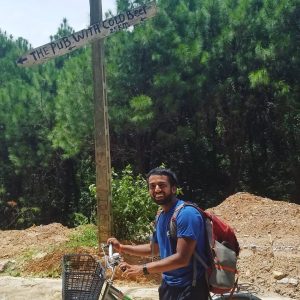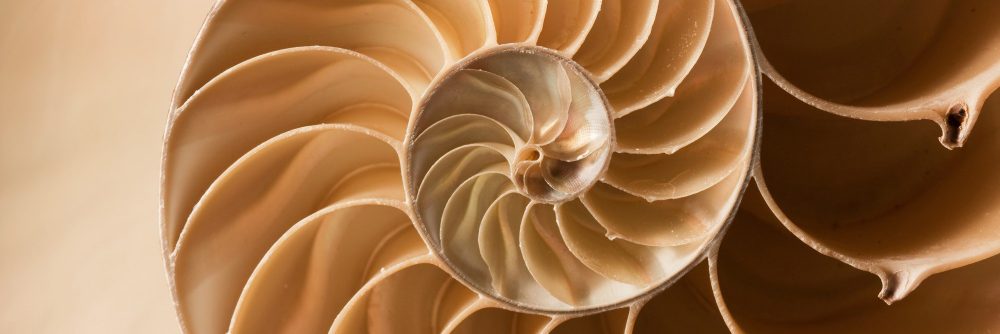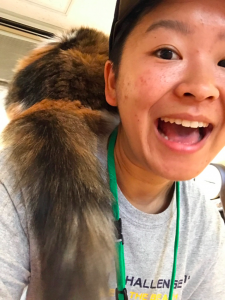 Ashwin Narayan ’16 left Williams with a math and physics degree and found himself in graduate school with little idea of what he was doing. Somehow, he’s muddled his way into his second year of a PhD in applied math at MIT, and he’ll keep going as long as the administration lets him. Here are his reflections on his first year in graduate school.
Ashwin Narayan ’16 left Williams with a math and physics degree and found himself in graduate school with little idea of what he was doing. Somehow, he’s muddled his way into his second year of a PhD in applied math at MIT, and he’ll keep going as long as the administration lets him. Here are his reflections on his first year in graduate school.
The realization that my first year of graduate school had ended only really hit me when I returned from vacation and had to fumble with the keys to my new (and empty) office. The “ziggurat,” a wonderful open-plan maze of cubicles and chalkboards, my home for the last year, was already occupied by the new batch of first-years. The first thought that occured to me was that I’d have to update my Tinder profile: “First year grad student pretending I know things but really subscribing to the ‘fake it til you make it’ doctrine.” As a first-year, impostor syndrome is cute and funny; as a second-year, maybe it’s worrying and sad. With qualifying exams coming up in January, maybe it’s no longer a good idea to answer, “I’m not sure yet …” when someone asks you, “So what type of math do you do?” It’s easy to get overwhelmed by the monumentality of the upcoming challenges, and reflection has always been my way to cope. It’s comforting to look back on what you once thought would be impossible but ended up being completely feasible.
Two years ago, I entered my senior year at Williams with unprecedented levels of self-confidence. The previous semester, I had thrived in Budapest, proving to myself that (a) I could survive in the real world (i.e. without a dining hall) and (b) maybe I was actually decent at math. Then there was a very productive and enjoyable REU experience over the summer which ended with tantalizing whispers of a potential publication. The next steps were obvious: write a thesis that revolutionizes the field, take some more hard classes, go to graduate school next year, draped in flying colors. Then repeat steps one and two. But of course, we remember Of Mice and Men, and this wasn’t even a particularly well-laid plan.
My first indication that I had perhaps over-simplified my future was the GRE subject test in mathematics. After years at Williams, I had forgotten that standardized multiple-choice exams existed, especially in math. I lived for partial credit. And apparently I was pretty terrible at calculus. Getting fewer than half of the questions correct on an exam ostensibly meant to evaluate my competence in the subject I majored in was already demoralizing. But then I stumbled upon this truly awful website where applicants from previous years listed their biodata and the schools they got into. Students who appeared far more qualified than me were getting rejected from schools far less selective than the ones I had set my sights on. Blog posts told me that graduate school was a waste of time unless I was absolutely certain I wanted to go into academia. How could anyone expect a liberal arts student to be absolutely certain about anything? At this point I wasn’t even certain which majors I would be finishing at Williams.
Writing statements of interest compounded the existential dread. Why did I want to go to grad school? Why applied math? What areas of math was I interested in? How was I qualified to attend this program? I couldn’t possibly use the actual answer to those questions. I wanted to go to grad school because I wasn’t ready to go into the real world and couldn’t pay for law or medical school. Applied math because it seemed the most versatile discipline and thus a way to postpone any real decision making. But because I hadn’t actually taken any applied math classes, I had no idea what areas I was actually interested in. And thus I felt in no way qualified for any of the programs I was applying to.

 Megumi Asada ’17, a former AWM officer, wrote the following short guide to applying to graduate school in math from Williams. They are currently teaching high school math through a teaching nonprofit called Blue Engine. The following year, they will be studying math at Cambridge on a Herchel Smith Fellowship. Feel free to
Megumi Asada ’17, a former AWM officer, wrote the following short guide to applying to graduate school in math from Williams. They are currently teaching high school math through a teaching nonprofit called Blue Engine. The following year, they will be studying math at Cambridge on a Herchel Smith Fellowship. Feel free to